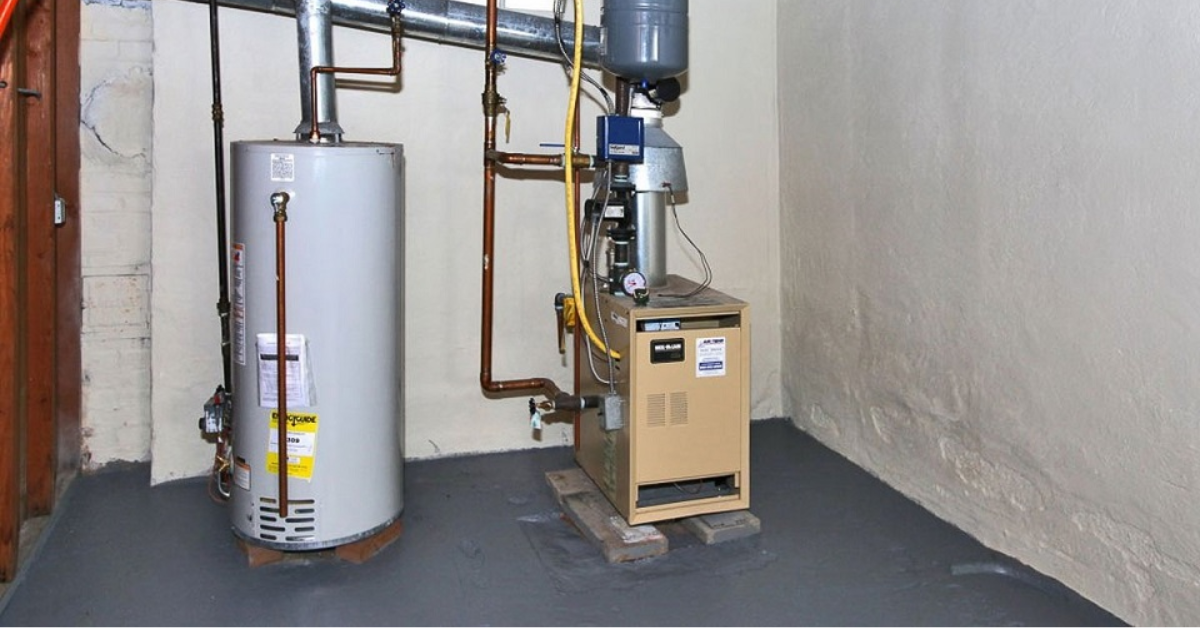Boiler vs. Furnace: Which Heating System Is Right for You?
When it comes to home heating, one of the biggest decisions homeowners face is choosing between a boiler and a furnace. Both systems provide warmth, but they operate in different ways and have unique benefits. Understanding how each system works, along with their advantages and drawbacks, can help homeowners make an informed decision about which heating system best suits their needs.
Some homeowners prefer the radiant heat of a boiler, while others appreciate the forced-air heating of a furnace. Factors such as energy efficiency, installation costs, maintenance requirements, and home layout all play a role in determining the best option. While both systems can effectively heat a home, choosing the right one ensures comfort, efficiency, and long-term savings.
Climate Systems Air Conditioning & Heating understands the importance of selecting the best heating system for each household. Whether upgrading an old unit or installing a new one, comparing boilers and furnaces can help homeowners make a choice that aligns with their home’s heating needs and budget.
1. How Boilers and Furnaces Work
The main difference between a boiler and a furnace is how they distribute heat throughout a home.
Boiler Heating System
A boiler heats water and distributes it as steam or hot water through pipes to radiators, baseboard heaters, or in-floor heating systems. The heat radiates through the space, creating even warmth.
- Heat Source: Gas, oil, or electric-powered burner.
- Heat Distribution: Radiators, baseboard heating, or underfloor heating.
- Method of Heat Transfer: Radiant heat, which warms objects and people rather than the air.
Furnace Heating System
A furnace heats air and distributes it through ductwork and vents using a blower. The warm air circulates throughout the home, raising the overall temperature.
- Heat Source: Gas, oil, or electricity.
- Heat Distribution: Forced air through ducts and vents.
- Method of Heat Transfer: Heated air is blown into rooms and then recirculated.
2. Energy Efficiency and Operating Costs
Energy efficiency is a key factor when choosing a heating system, as it impacts both comfort and utility bills.
Boiler Efficiency
- Boilers typically have higher efficiency because water retains heat better than air.
- Modern condensing boilers can achieve efficiency ratings of 90% or higher.
- Radiant heat is more effective at maintaining warmth, reducing the need for frequent cycling.
Furnace Efficiency
- High-efficiency furnaces (AFUE rating of 95% or higher) can rival boilers in energy savings.
- Furnaces work quickly, warming a home faster than a boiler.
- Ductwork inefficiencies can lead to heat loss, reducing overall performance.
Verdict: Boilers tend to be more efficient in retaining heat, while furnaces provide faster heating but may experience energy loss through ducts.
3. Installation and Upfront Costs
The cost of installing a heating system depends on the complexity of the system and whether ductwork or piping is required.
Boiler Installation Costs
- Generally more expensive than furnaces due to extensive piping and labor.
- Best suited for homes already equipped with radiators or underfloor heating.
- Can be more difficult to retrofit in homes with forced-air systems.
Furnace Installation Costs
- More affordable upfront, especially if ductwork is already in place.
- Easier to install and replace, requiring less labor than a boiler.
- Homes without existing ducts may require additional installation costs.
Verdict: Furnaces typically have lower upfront installation costs, while boilers require a larger investment but provide long-term efficiency.
4. Heating Comfort and Air Quality
The type of heat a system produces affects overall home comfort and indoor air quality.
Boiler Heating Comfort
- Provides consistent, even heat without the dryness associated with forced air.
- Radiant heat eliminates drafts and cold spots.
- Operates silently, unlike furnaces with blowers.
Furnace Heating Comfort
- Heats rooms quickly but can result in uneven temperature distribution.
- Can make air feel drier, requiring the use of a humidifier.
- Air circulation may spread dust and allergens if filters aren’t changed regularly.
Verdict: Boilers provide more consistent warmth and better air quality, while furnaces heat homes faster but may cause dry air and circulation issues.
5. Maintenance and Longevity
Routine maintenance is essential for both heating systems to ensure efficiency and longevity.
Boiler Maintenance and Lifespan
- Requires annual inspections for leaks, pressure levels, and system efficiency.
- Less frequent repairs since there are fewer moving parts than a furnace.
- Lifespan: 20–30 years with proper care.
Furnace Maintenance and Lifespan
- Requires filter changes every 1–3 months to maintain air quality and efficiency.
- Needs regular servicing to check the blower motor, belts, and burners.
- Lifespan: 15–20 years, depending on maintenance and usage.
Verdict: Boilers have fewer moving parts and tend to last longer, while furnaces require more frequent maintenance but are easier to repair.
6. Climate Considerations: Which System Works Best?
The effectiveness of a heating system depends on the local climate and weather conditions.
Best Climates for Boilers:
- Cold regions where long-lasting heat retention is beneficial.
- Homes that prioritize radiant heating over forced air.
Best Climates for Furnaces:
- Areas with mild winters, where rapid heating is needed only occasionally.
- Homes requiring both heating and cooling, as furnaces can be integrated with central air conditioning.
Verdict: Boilers are ideal for colder climates, while furnaces work well in regions with fluctuating temperatures.
7. Environmental Impact
Both boilers and furnaces have eco-friendly options, but efficiency varies by fuel type.
Eco-Friendly Boiler Options
- High-efficiency condensing boilers reduce energy waste.
- Some models are compatible with solar thermal systems for added sustainability.
Eco-Friendly Furnace Options
- Modern furnaces use high-efficiency gas or electric models to lower emissions.
- Heat pumps offer an energy-efficient alternative, using electricity rather than gas.
Verdict: Boilers have better heat retention, but high-efficiency furnaces and heat pumps provide sustainable heating options.
Final Thoughts
Both boilers and furnaces have their advantages, and the best choice depends on a homeowner’s heating needs, budget, and climate. Boilers offer long-term energy savings, superior comfort, and better air quality, while furnaces provide lower installation costs and faster heating.
Choosing the right heating system requires considering efficiency, comfort, and long-term costs. Climate Systems Air Conditioning & Heating helps homeowners evaluate their options, ensuring they select the most effective and energy-efficient solution for their home. Whether installing a new system or upgrading an existing one, selecting the right heating method ensures comfort and efficiency for years to come.
Stay in touch to get more updates & alerts on VyvyManga! Thank you






